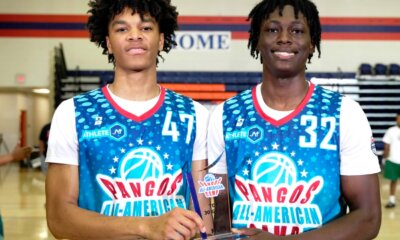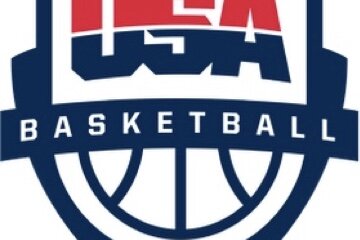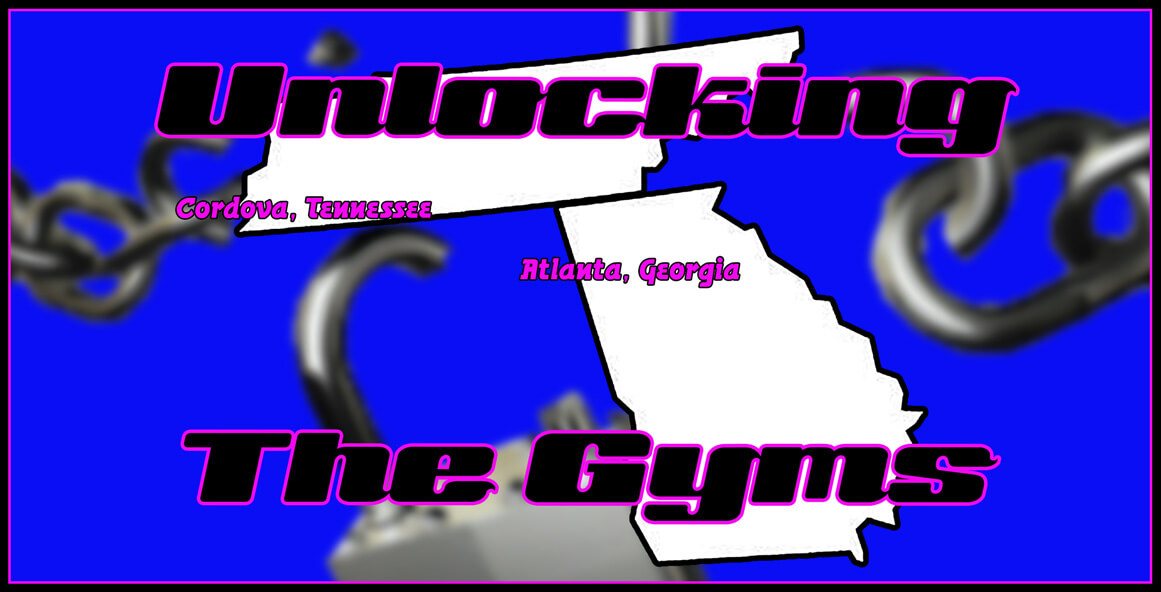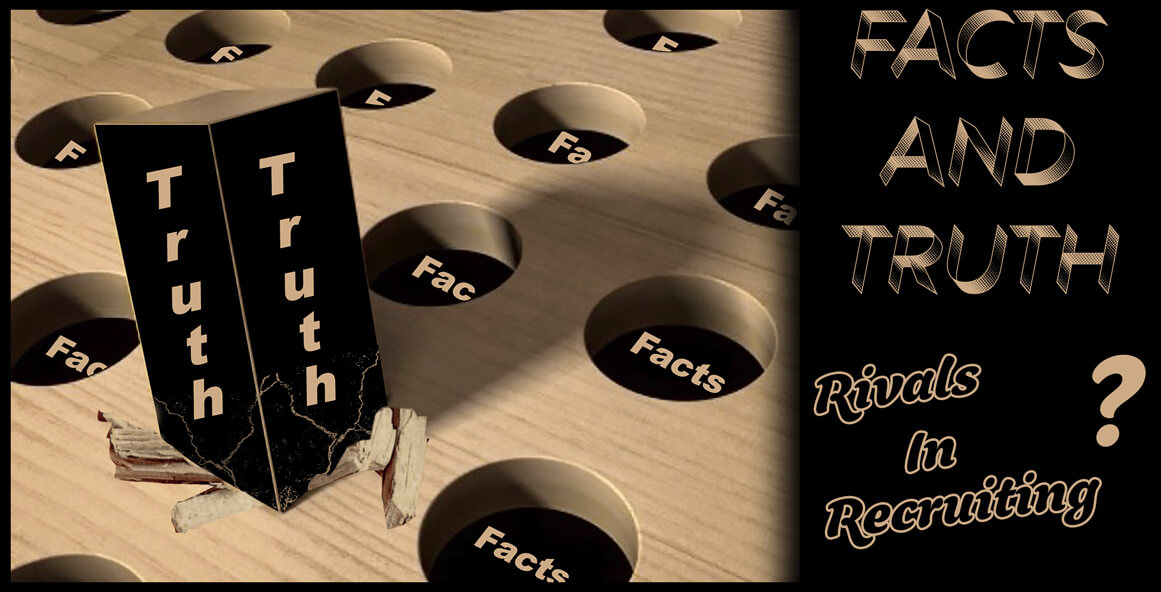
God bless the presidential candidates…all of them…republican and democrat alike. If ever you’re dealing with self-doubt or question your place in the grand scheme of things, these individuals, their campaigns and fictional rhetoric should help inflate your own ego to a level that even Roger Goodell would concede for Tom Brady. It’s almost impossible to look at them and not feel better about yourself.
Why open by pointing out the extraordinarily obvious? Because they also happen to provide a great analogy for the recruiting process. It’s simple and a topic I’ve written columns on in the past. Recruiting and political campaigns have enough similarities to make you cringe at the very thought of them existing in the same sentence. However, with all due respect to campaign managers desperately trying to figure out how to snag your vote, you guys are amateurs compared to some of the coaches we have in women’s basketball. The challenging part for the recruit or the voter is disseminating the information, scraping the frosting off and seeing if a specific choice is a long term answer or just the flavor du jour. When we talk about recruiting we usually follow it with the word “process” and for the most part it’s an accurate depiction of how coaches go about “selling” you their product.
Yes, there it is, I used profanity. I correlated, even minimized, the choice of an educational experience…the possibilities of athletic achievement and reward plus the promise of mature socialization and growth…to the simple equivalent of a Walmart purchase. Obviously I realize that it’s slightly more important than picking up a new toothbrush, some garden supplies and a half gallon of Newman’s Own Lemonade but in the end it’s still about making an informed decision to fulfill a need. You know…sales.
The recruiting process for coaches these days is all about creating, cultivating and promoting a representation of their program and what it might mean to the future of an athlete and her family. Just like our beloved white house candidates who can’t step in front of a camera without knowing the potential impact of wearing a red or blue tie, good recruiters assess, analyze and dissect every aspect of their efforts. Nothing is random, organic or left to chance. Every step of the aforementioned “process” is calculated and choreographed more than Beyoncé’s latest video. None of that devalues the opportunities a school can offer or the degree to which a program might be a good fit. It just makes it tougher to get through to the actual reality of what might be available on one campus or another.
Somehow a prospect, her family and coaches have to strip down all that a program has shared over time to its bare bones. The focus has to be kept on “what” was presented rather than the distorted, fluffed up means of “how” it happened to be presented. Athletes are making official visits this fall that in no way bare any resemblance to the everyday life of a college athlete that they’ll find should they commit to one of these programs offering up a 48 hour official visit the equivalent of a Broadway production.
Decorated hotel rooms, staged locker rooms, campus tours with cameo appearances, and whatever other cute and creative ways they can weave that “personal element” into a visit are fun but in reality are nothing more than window dressing. It’s the view out that window, the things that are constant, that should receive the closest scrutiny and careful consideration as a decision is made.
One of the greatest distortions of campus visits, official or unofficial, is the rose colored glasses that football weekends provide. The atmosphere, environment and energy can be utterly different than any normal weekend on campus. It’s no surprise that recruiters try to schedule visits which coincide with a home game. They’re usually a great time but almost always weak indicators of somewhere to call home. Face it, if you’re on campus year round for five years you’re looking at 260 weekends. If football averages six home games a year then just 11.5 percent of your weekends will potentially offer up the same excitement you found on your visit. Don’t forget the fact that at that point you’ll no longer be “the recruit”. You’ll find those weekends won’t feel quite as special as they did back on your own trip to campus. In fact, there’s a drastic role reversal because a student athlete now carries a part of the responsibility to make those weekends about that “next” recruit.
Another aspect of the football related visit is who they’re playing that weekend. Assuming the dates fit the decision making timeline, if their football program has a high profile, big draw, game of the year in their stadium but they’re trying to get you to come on the weekend they play Cupcake State University…it usually means one of two things. They had other recruits on the “big” weekend that are a higher priority to them. It’s not written in stone, but for the most part coaches want their top choices to see a full stadium, active campus and the whole town embracing the best games. Of course, it could also mean that they think they might come up on the short end of an ugly final score and want to keep you away from a football funeral. Either way you look at it, football weekends seldom offer the look at reality necessary for a decision based in everyday campus life.
Whether it’s a voter looking for a candidate or a prospect looking for a school, they’re each trying to find answers in the hyperbole and crafted messages they’re constantly inundated with. A critical understanding of the process is that it’s all about you. It’s not fate or a coincidence when you feel like coaches have known you your whole life. It’s their job and most of them are pretty good at it. In politics it’s called “spin”. Again, the focus is not so much on “what” is seen but more so on “how” it is seen and interpreted. They’ve been taking note of your interests, preferences and passions every chance they can get. It doesn’t indicate that they lack sincerity or even that they’re concealing a deficiency in what their program has to offer. They’re just painting a picture and want to use a recruit’s favorite colors to make it a work of art. Just keep in mind it’s not a masterpiece just because the artist happens to tell you that it is.
The hard reality that sets in once a signee is on campus is that the focus now shifts away the individual and to the team. Coaches and teammates no longer cater to your every whim, your favorite snacks don’t magically appear on the nightstand and you find yourself with responsibilities of your own in the extensive effort to impress the next group of recruits on their visits. Don’t get me wrong, a different kind of embrace wraps its arms around an athlete and they become part of a community, university, program and family. However, the dating is now over and you get down to the real nuts and bolts of the relationship.
This is where politics and athletics go their different ways…at least for the most part. Once candidates take the oath of office they seem to develop issues with their memories and those campaign promises they offered up. Basketball teams have smaller constituencies of just 10 to 15 players who have a tendency to recall every single thing they were told throughout the recruiting process. And contrary to office holders, recruiters must face those that they made their sales pitches to virtually every single day. With that kind of accountability you don’t often find college coaches who will out and out lie. You do, however, become acutely aware of the things that may have been stretched, twisted and exaggerated all in the name of recruiting.
So here’s some advice on cutting through the haze and illusion of paradise promised. We’ll shift from politicians to “ex’s”. You know the ones, ex-husbands or ex-wives, ex-boyfriends or ex-girlfriends. The current players on any roster happen to be “ex-recruits” and they’re your best source of unfiltered information and the reality of everyday life in any program. The coaches, your hosts and department reps are going to tell you all the good about a program and everything it has to offer. You need someone who will tell you what isn’t exactly as it was portrayed or something another individual wishes “they would have known” before signing that National Letter of Intent. Not one program in America is perfect and each has weaknesses when lined up against the priorities of any prospect. Rest assured your “soulmate” in the recruiting process, just like love, will still have a couple of flaws.
That being said, seek out the players least involved in your visit. As I‘ve written many times before the hosts and players who are the most involved in any visit are carefully chosen. Ask the tough questions of the player who isn’t at dinner or the tailgate party. If they’re all there, seek out the one who seemingly has the least to say. Do some homework before you get there and see if those players who have been playing the least minutes are still happy with their decisions. You’ll have to take those answers with a grain of salt but if there are some consistencies in several responses it could be time to follow up with the coaches. One other source of the unvarnished truth is from players who have transferred. Find a way to confirm that the explanation the coaches provide you matches the one you get from the departed athlete. It can take some work tracking down their version but it’s something important to know before the trigger is pulled on any decision. Any program that has an issue with a recruit asking is the one who has something they don’t want her to know.
It’s offensive that the transfer rate in women’s basketball is skyrocketing and it’s a fool who believes that the genesis of the problem lies anywhere but in the initial choice of an athlete. Parents, coaches, those of us surrounding the process as well as the athletes themselves all have a hand in creating a more conducive environment for informed decisions. Home visits have regained some of the emphasis they once had and wiser players are holding off on commitments until they make a couple of official campus visits. These promising changes and the restraint that the underclassmen are finally showing indicate we just might be heading in the right direction.
I’ve been accused at times of always pointing out the negatives in the recruiting process. Of course I do. The college coaches themselves point out all of the positives. They certainly don’t need my help. I was a recruiting coordinator at the Division–I level for 25 seasons and if I’m writing about it…chances are, I did it myself. Recently, I started a couple of speaking engagements with the parents of recruits by stating that “I don’t care where your daughters go to school”. And I don’t. I have no agenda or allegiances to serve in my writing. What I care about is offering some tips or insight into making a good decision. If you want to take issue with my approach it should be that I use such unsavory characters as politicians and ex’s in my columns! See you in the gym.
Mark Lewis is a national evaluator and photographer for Blue Star Basketball as well as the lead columnist for Blue Star Media. Twice ranked as one of the top 25 Division I assistant coaches in the game by the Women's Basketball Coaches Association (WBCA), he logged 25 years of college coaching experience at Memphis State, Cincinnati, Arizona State, Western Kentucky and Washington State. Lewis serves as a member of the prestigious McDonald’s All-American selection committee as well as the Naismith College Player and Coach of the Year committees.

Latest Articles
-
Christopher Lawlor
/ 1 day agoSPEARHEADED: Americans crush Brazil by 79 points at FIBA U16 AmeriCup quarterfinals; Marcus Spears Jr. puts up 16 points and 9 rebounds
JUAREZ, Mexico — The USA men passed its first test in the knockout stage...
-


Christopher Lawlor
/ 4 days agoSTARS SHINE: Bailey, Costello earn Co-MVPs at 23rd Pangos All-American Camp in Las Vegas; three Santa Margarita (CA) players recognized
LAS VEGAS – The Pangos All-American Camp did not disappoint. For three days the...
-


Christopher Lawlor
/ 6 days ago23rd Pangos All-American Camp tips off in Las Vegas with nation’s elite players congregating for national showcase event
LAS VEGAS – The summer circuit is nearly two months old but it really...
-


Christopher Lawlor
/ 1 week agoU16 USA Women’s Basketball National Team roster selected for 2025 FIBA AmeriCup in Mexico from June 16-22
COLORADO SPRINGS, Colo. — USA Basketball announced today the 2025 USA Women’s U16 National...




